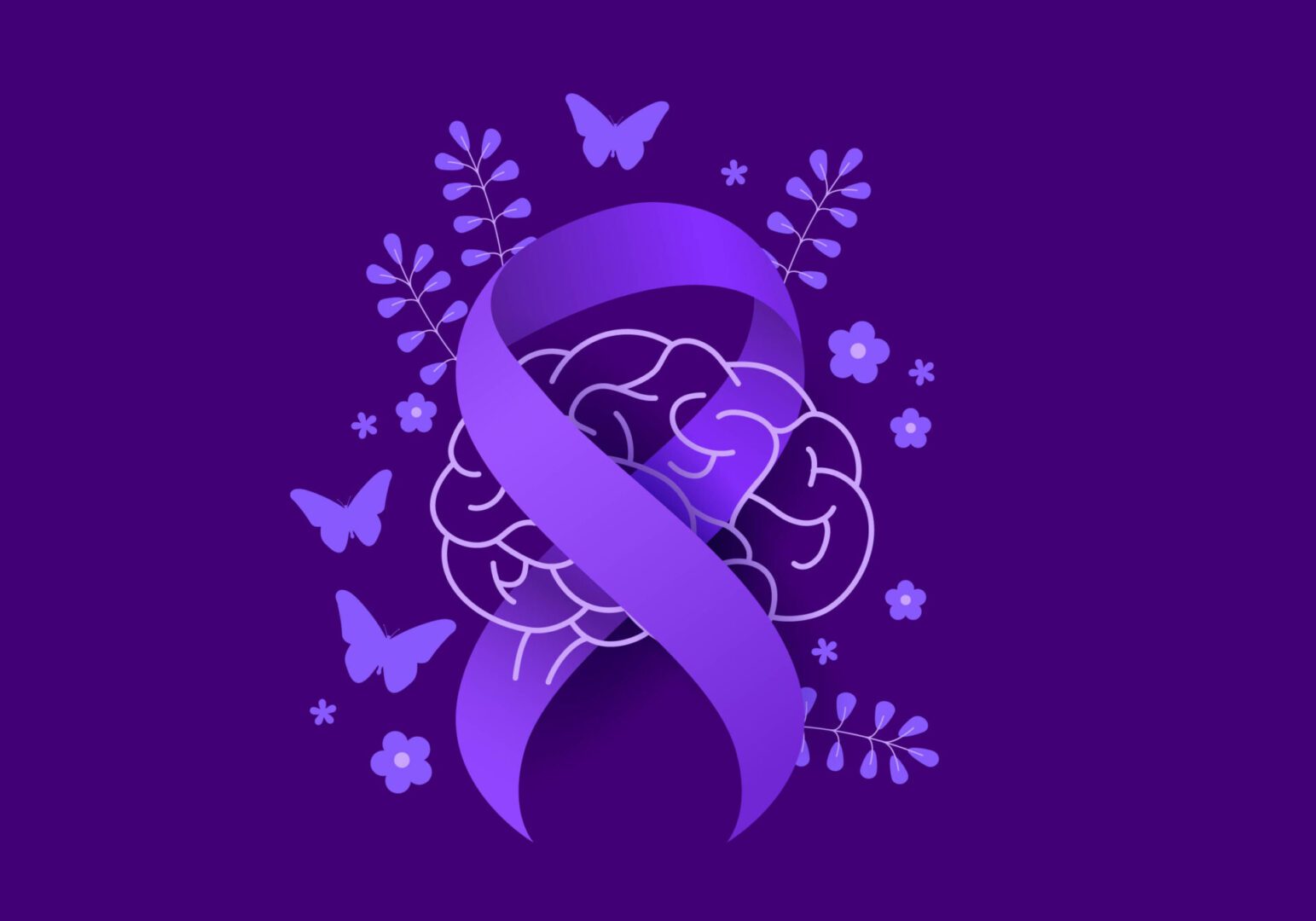Search by Color or Cause


Observe World Alzheimer’s Month in September. This international campaign raises awareness and challenges the stigma that surrounds dementia. World Alzheimer’s Month was launched in 2012. In addition, World Alzheimer’s Day is observed on September 21 each year. According to research, two out of every three people globally believe there is little or no understanding of dementia in their country.
World Alzheimer’s Month is growing, but the stigmatization and misinformation that surrounds dementia remains a global problem that requires global action. According to the Journal of Alzheimer’s Disease, a major focus of Alzheimer’s research is to find a way to detect the disease before irreversible brain damage occurs.
Wear a purple enamel awareness ribbon pin, fabric ribbon, or purple silicone wristband for World Alzheimer’s Month.
To your lapel, pin a purple awareness pin, fabric ribbon or wristband during World Alzheimer’s Month. This symbol of awareness calls attention to those who are living with Alzheimer’s, as well as caretakers of those with the disease.
Each September, the Alzheimer Society supports World Alzheimer’s Month. During this month, we encourage organizations and individuals like you to learn more about dementia. It’s important to understand its stark impact on those struggling with the disease. This includes those from people living with dementia, to their families, care partners, healthcare providers, and more.
And while World Alzheimer’s Month may stop at the end of September, the experiences of people who live with dementia do not. As such, we ask you to take what you’ve learned during the month and continue to share it throughout the year. By understanding what people living with dementia experience in their day-to-day-lives, including their struggles, successes and hopes, we can raise awareness of dementia throughout the World. Awareness is the first step to fighting stigma, reinforcing human rights, and pushing for policy change, as well as other actions that can lift up those living with dementia.
Whether you’re concerned for yourself or someone you care about, it’s important to know the warning signs of dementia so you can ensure an early diagnosis.
Here are 10 of the most common warning signs for dementia:
Are you, or the person you know, forgetting things often or struggling to retain new information?
It’s normal to occasionally forget appointments, colleagues’ names or a friend’s phone number only to remember them a short while later. However, a person living with dementia may forget things more often or may have difficulty recalling information that has recently been learned.
Are you, or the person you know, forgetting how to do a typical routine or task, such as preparing a meal or getting dressed?
Busy people can be so distracted from time to time that they may forget to serve part of a meal, only to remember about it later. However, a person living with dementia may have trouble completing tasks that have been familiar to them all their lives, such as preparing a meal or playing a game.
Are you, or the person you know, forgetting words or substituting words that don’t fit into a conversation?
Anyone can have trouble finding the right word to express what they want to say. However, a person living with dementia may forget simple words or may substitute words making that person hard to understand.
Are you, or the person you know, having problems knowing what day of the week it is or getting lost in a familiar place?
Have you ever forgotten what day of the week it is or can’t remember why you went into your bedroom? It happens to all of us. However, people living with dementia can become lost on their own street, not knowing how they got there or how to get home.
Are you, or the person you know, not recognizing something that can put health and safety at risk?
From time to time, people may make bad decisions such as putting off seeing a doctor when they are not feeling well. However, a person living with dementia may experience changes in judgment or decision-making, such as not recognizing a medical problem that needs attention or wearing heavy clothing on a hot day.
Are you, or the person you know, having problems understanding what numbers and symbols mean?
From time to time, people may have difficulty with tasks that require abstract thinking, such managing finances. However, someone living with dementia may have challenges understanding what numbers are and how they are used.
Are you, or the person you know, putting things in places where they shouldn’t be?
Anyone can temporarily misplace a wallet or keys. However, a person living with dementia may put things in inappropriate places. For example, an iron in the freezer, or a wristwatch in the sugar bowl.
Are you, or the person you know, exhibiting severe changes in mood?
Sometimes people feel sad and moody, or experience changes in their behavior. But a person living with dementia may experience more severe changes. For example, they may quickly become tearful or upset for no obvious reason. They may be confused, fearful, suspicious and withdraw from others. They may act differently from what is normal for them.
Are you, or the person you know, losing interest in friends, family and favorite activities?
It’s normal to lose interest in housework, business activities or social obligations, but most people regain their initiative. However, a person living with dementia may become passive and disinterested. They may need cues and prompts to become involved.
Are you or someone you know having problems seeing things correctly? Or coordinating visual and spatial information?
A person with dementia may have problems with vision, depth perception and movement. They may have challenges with finding their way around their environment. Or they may have trouble placing things easily and correctly on a table. This includes things such as a pencil or mug.
Sometimes dementia can be the cause of these issues. It’s important to see a doctor and an eye specialist to get everything checked out.